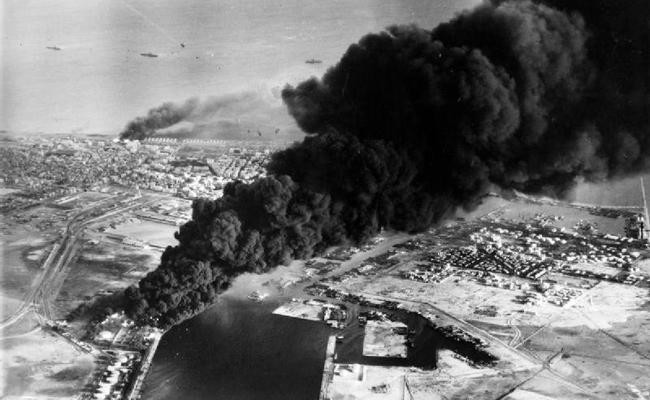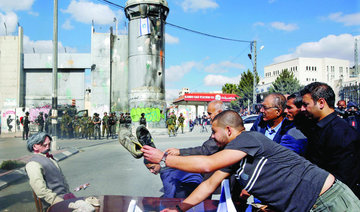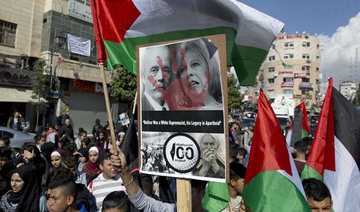LONDON: A British MP has made a call for the UK to apologize to Egypt for the 1956 Suez Crisis as it looks to form a “new relationship” with Cairo.
Britain’s position on the global stage was forever altered by its invasion, along with France and Israel, of Egypt in an attempt to wrestle back control of the canal. It later withdrew.
Daniel Kawczynski, an MP for Shrewsbury, said that the move was an “disaster” and “illegal mistake” and issued a call for a formal apology.
“It would be very magnanimous of us as British politicians now, 60 years on, to say ‘Suez was a mistake, we made a mistake, we apologize for that … We ask the Egyptian people for their forgiveness for the mistake that we made, and we ask them to now work with us in a new relationship.’ It takes a lot of guts for a country as large and important as ours (to apologize),” he told Arab News.
Kawczynski said that he would be raising the issue in the UK Parliament.
“There’s a lot of reticence about this issue in the House of Commons. I think there are many people who want to brush this under the carpet, who believe that too much water has flown under the bridge, and that we should just focus on bilateral relations today,” he said.
“But I’ve got some very good trusted Egyptian friends who say to me that this issue would demonstrate to the Egyptian people that the UK is serious about a new relationship with their country.”
The MP also raised the issue of the World War II land mines that British fighters left behind in the Battle of El-Alamein.
The mines have caused more than 8,000 causalities in Egypt since World War II and have led to calls for European forces to hand over maps of where they were planted. Some have argued, however, that the maps would not be of use because of the shifting sands of the Egyptian desert.
Kawczynski said he plans to “ask questions of the government as to what work is being done” to help identify where the mines are buried.
“El-Alamein is strewn with an inordinate amount of mines. And if there is even one death a year in El-Alamein as a result of these mines not being fully mapped, that is completely unacceptable,” he said.
Kawczynski called on the UK government to hand over the maps.
“It’s hugely important. I don’t understand the strategic importance, 70 years on (in not handing over the maps). We ought to be giving as much information to our Egyptian partners as possible to make sure that they know where all these mines are,” he said.
“The idea that our land mines today are causing the deaths of Egyptian citizens … because of a lack of cooperation and engagement between the British government and the Egyptian government on this issue is completely unacceptable.”
The UK’s Foreign and Commonwealth Office did not immediately respond to a request for comment.













